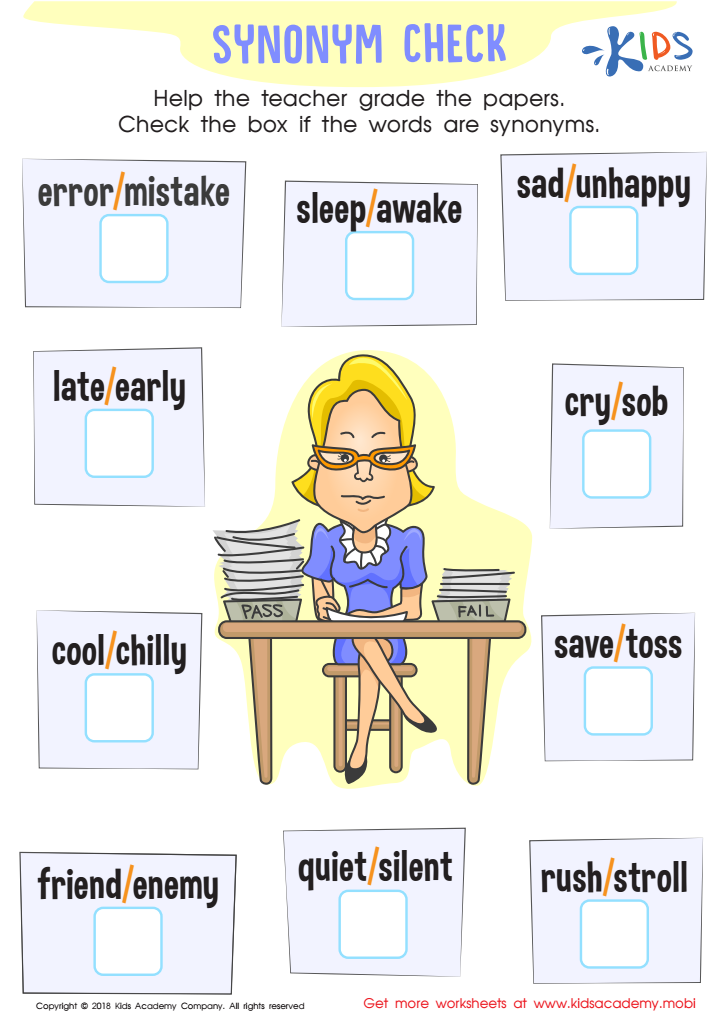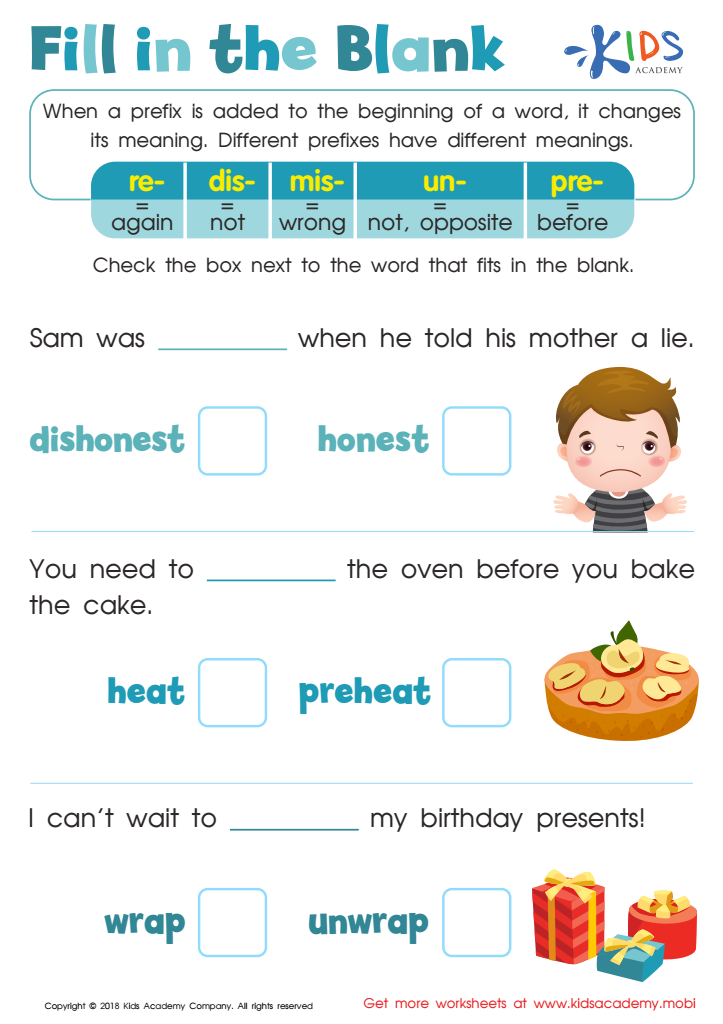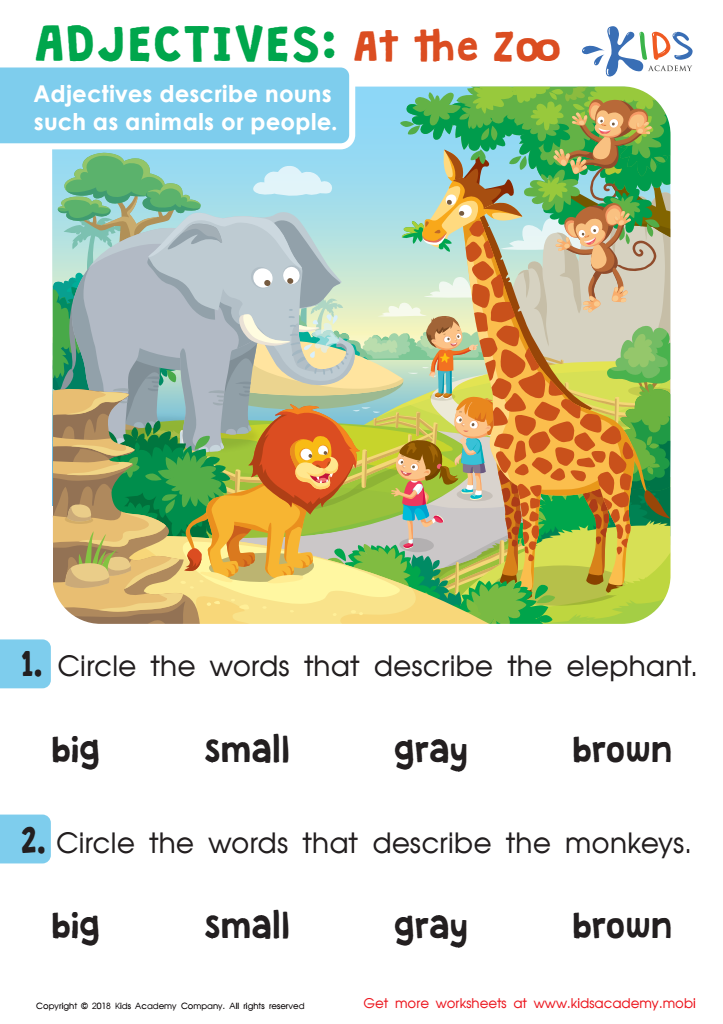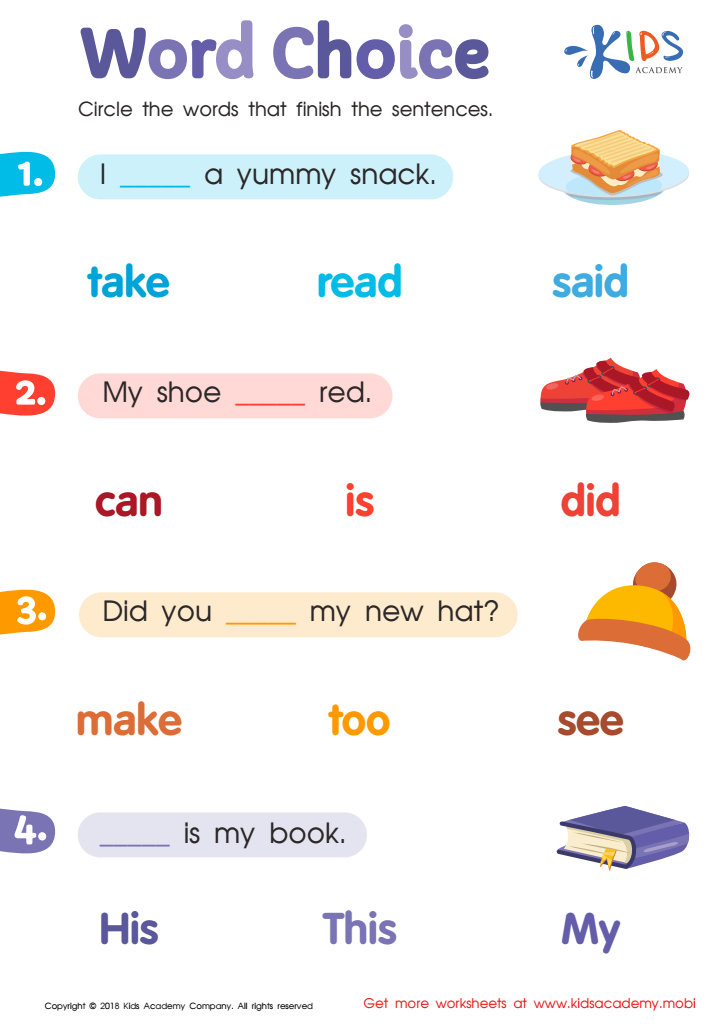Contextual understanding Normal Building Vocabulary Worksheets for Ages 8-9
4 filtered results
-
From - To
Enhance your child's vocabulary with our Contextual Understanding Normal Building Vocabulary Worksheets designed specifically for ages 8-9. These engaging worksheets encourage students to explore word meanings in context, fostering deeper comprehension and retention. With varied exercises that blend reading fun with skill-building, kids will recognize how words fit into sentences, enhancing both their vocabulary and reading fluency. Our carefully crafted worksheets promote critical thinking and allow learners to connect new words with real-life situations. Perfect for classroom use or at-home practice, these interactive resources pave the way for confident reading and writing. Give your child the tools they need to succeed today!


Synonym Check Worksheet


Reading: Fill in the Blank Worksheet


Adjectives: At The Zoo Worksheet


Word Choice Worksheet
Contextual understanding and vocabulary development are crucial for children aged 8-9 because they are foundational skills that support overall literacy and academic success. During this developmental stage, children are increasingly exposed to more complex texts across subjects. By fostering strong contextual understanding, teachers and parents help children grasp the meaning of words within specific situations, which enhances their reading comprehension and critical thinking abilities.
When children learn new vocabulary in context, they can make connections between words and their meanings, facilitating retention and use in their writing and speaking. This not only broadens their lexical resources but also aids in expressing ideas more clearly. Moreover, a rich vocabulary allows for greater engagement with challenging material, leading to improved performance in school.
Additionally, contextual understanding fosters empathy and awareness of social dynamics by exposing children to diverse perspectives in literature. Teachers and parents who prioritize these skills empower children to articulate thoughts and emotions, bolstering social interactions and self-confidence.
Therefore, a focus on contextual understanding and vocabulary isn't just about academic achievement; it's a means of nurturing well-rounded, communicative, and critical thinkers in an ever-evolving world. Ultimately, investing in these areas enhances a child's lifelong learning journey.
 Assign to My Students
Assign to My Students

















.jpg)













